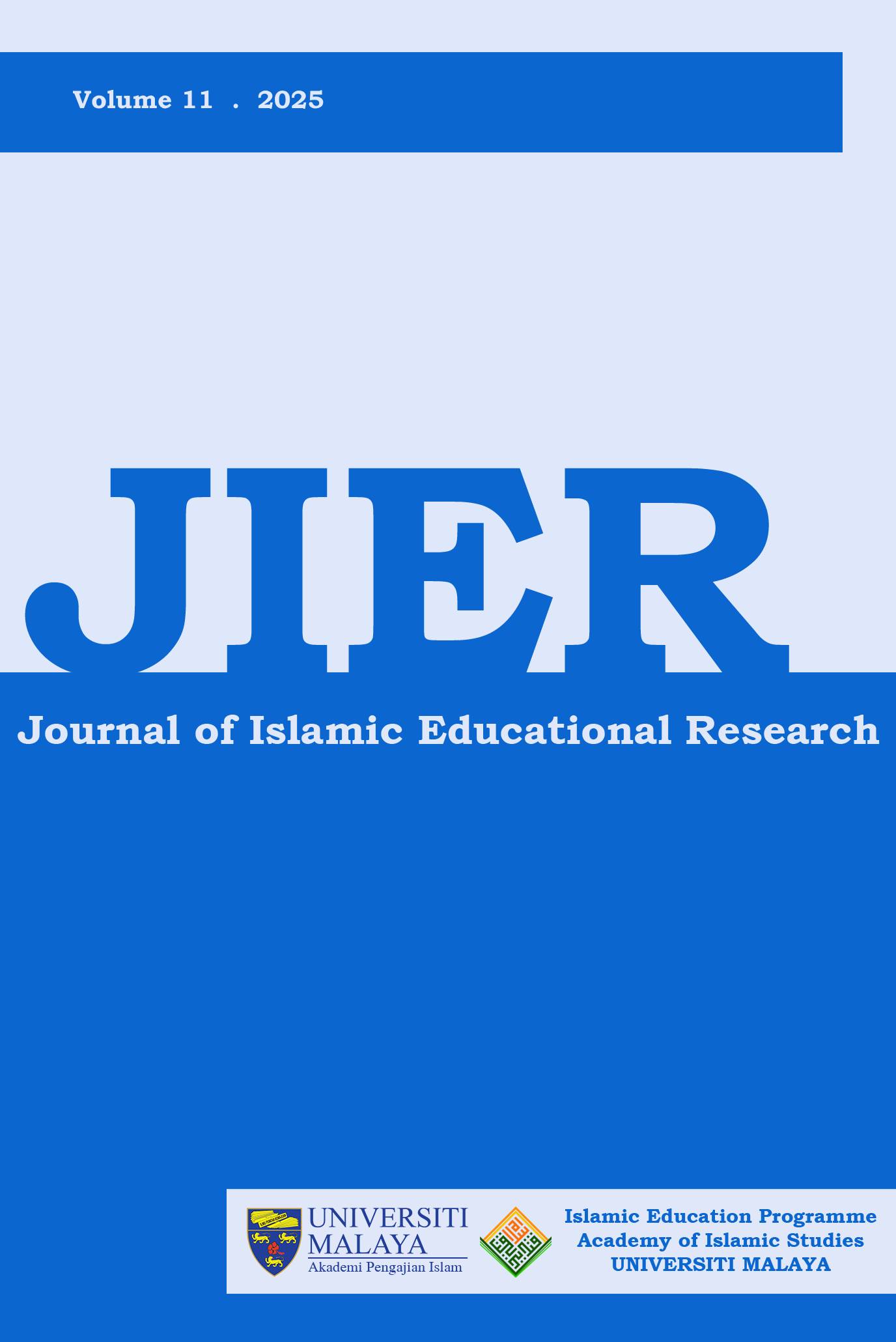The Role of Virtual Classrooms on Developing Reflective Thinking in Islamic Education Among Students from Teachers’ Perceptions in UAE
Keywords:
Virtual Classrooms, Reflective Thinking, Islamic Education, UAEAbstract
The research aimed to identify the role of virtual classrooms on developing reflective thinking in Islamic education among students from teachers’ perceptions in UAE. To achieve that, a quantitative design (descriptive-analytical approach) was used, and a questionnaire consisting of 30 items, distributed equally into two domains: the importance of employing virtual classrooms and the role of virtual classrooms in developing reflective thinking in Islamic education, was applied to a random sample of 467 Islamic education teachers. The results showed that the degree of importance of employing virtual classrooms in teaching Islamic education was (high), and the level of the role of virtual classrooms in developing reflective thinking in Islamic education among students was (high). The results also showed no significant difference in the degree of importance of employing virtual classrooms in teaching Islamic education due to (gender, educational stage, academic qualification, and years of experience) variables. Moreover, the results showed a significant difference in the role of virtual classrooms in developing reflective thinking in Islamic education among students due to the academic qualifications variable in favor of PhD and MSc, and experience variable in favor of less than 10 years’ experience, while no differences appeared due to (gender and educational stage) variables. According to these finding, the researchers recommend the necessity of continuing to employ virtual classrooms in teaching, even in normal circumstances, because of their prominent role in developing reflective thinking.
Downloads
Downloads
Published
How to Cite
Issue
Section
License
The published manuscript shall be a copyright of the Islamic Education Programme, Academy of Islamic Studies, University of Malaya, Kuala Lumpur, Malaysia. The published manuscript would not represent the stand or opinion of the Advisory Board, Editorial Board, Co-Editorial Board and the Management Team of Journal of Islamic Educational Research (JIER), or the Islamic Education Programme, Academy of Islamic Studies, University of Malaya.
Note: This is an open access journal which means that all content is freely available without charge to the user or his/her institution. Users are allowed to read, download, copy, distribute, print, search, or link to the full texts of the articles in this journal without asking prior permission from the publisher or the author. This is in accordance with the BOAI definition of open access.


